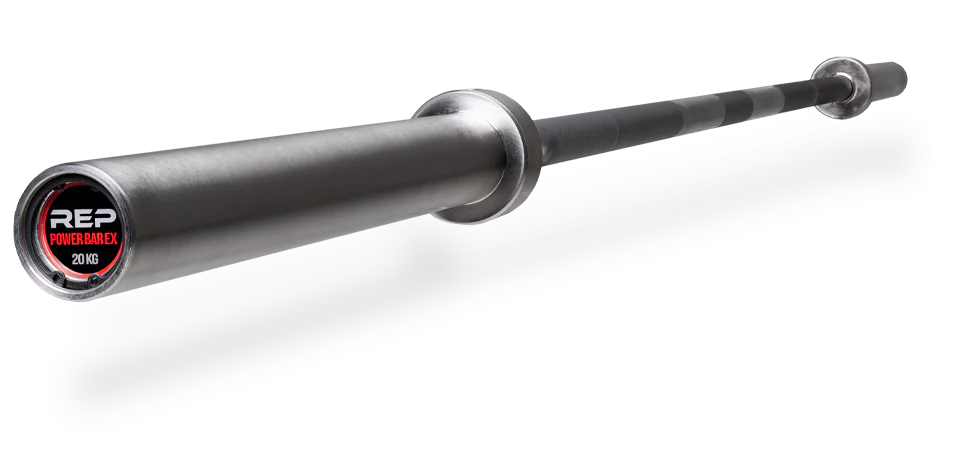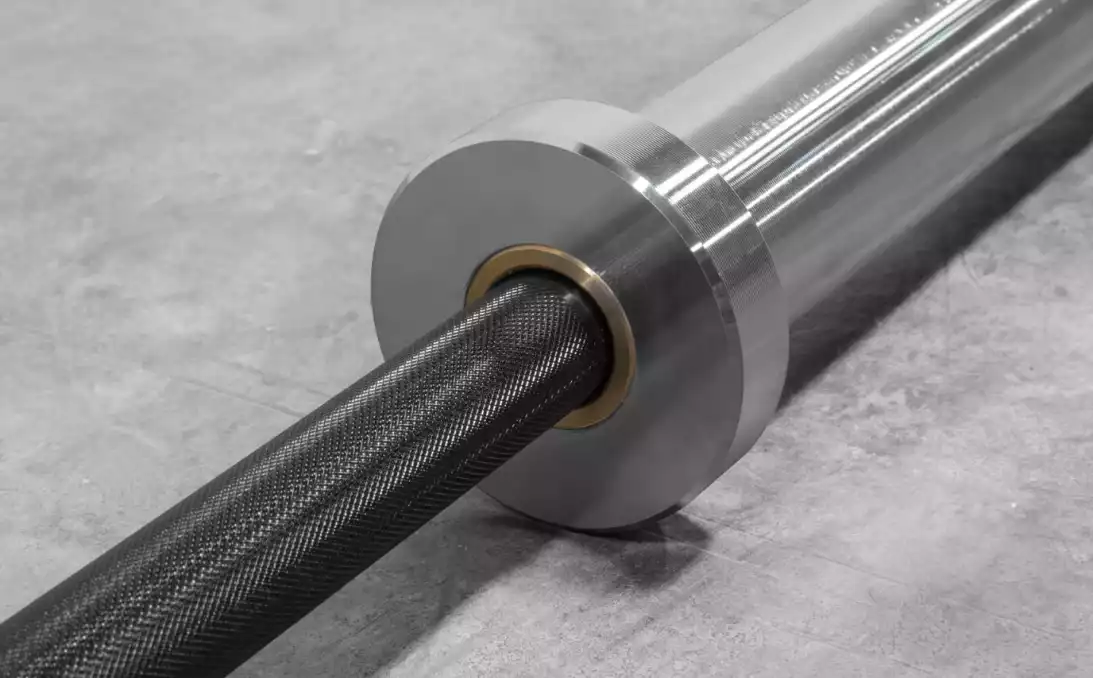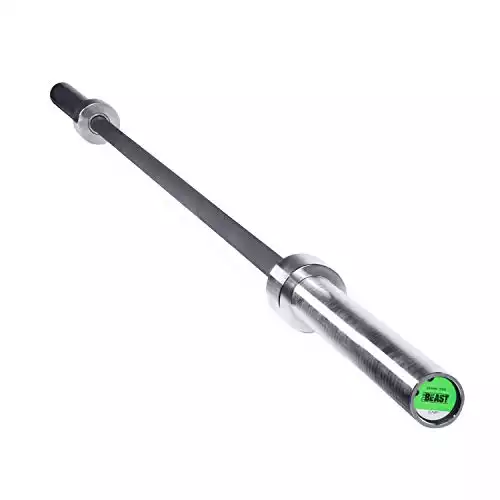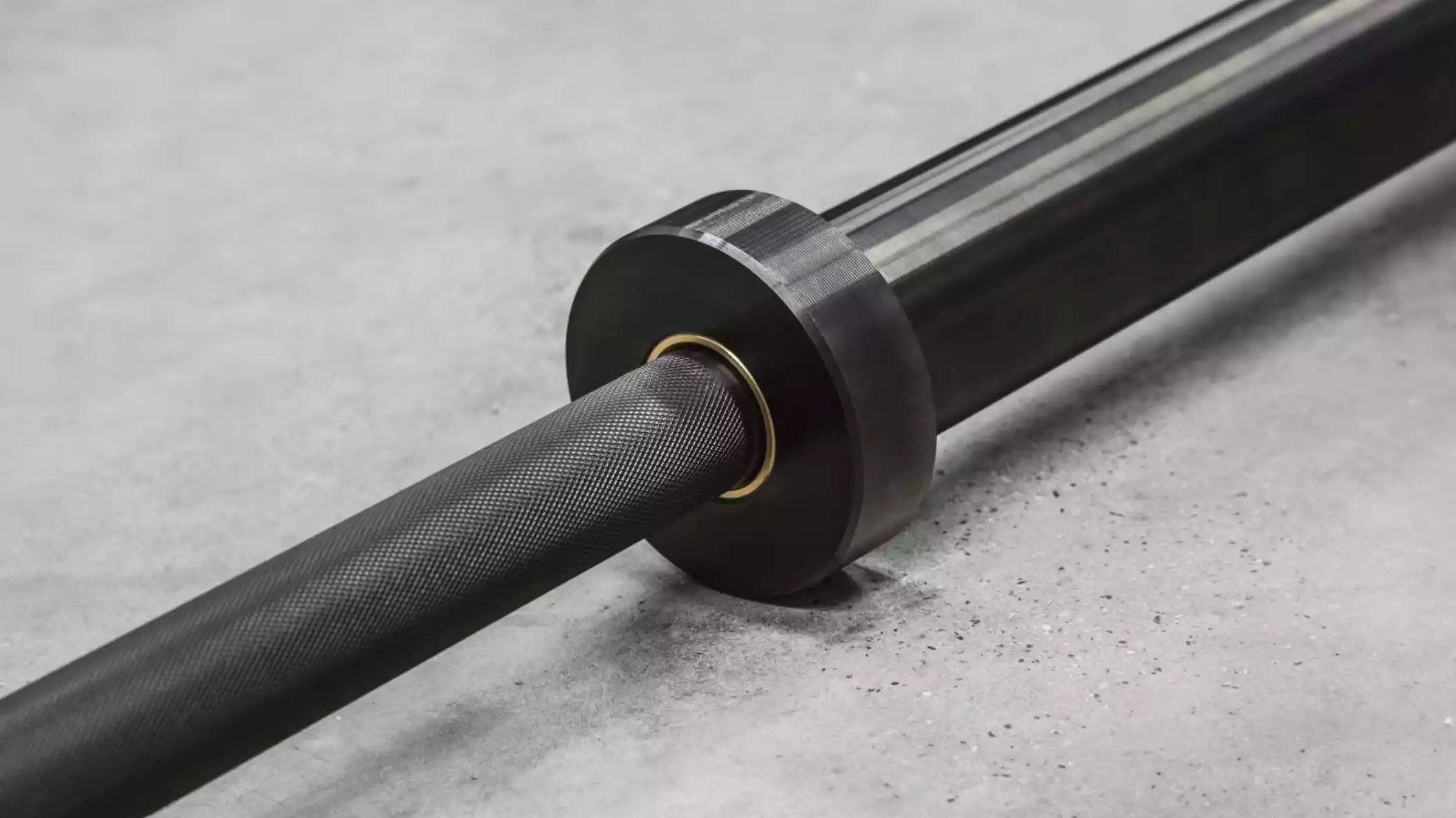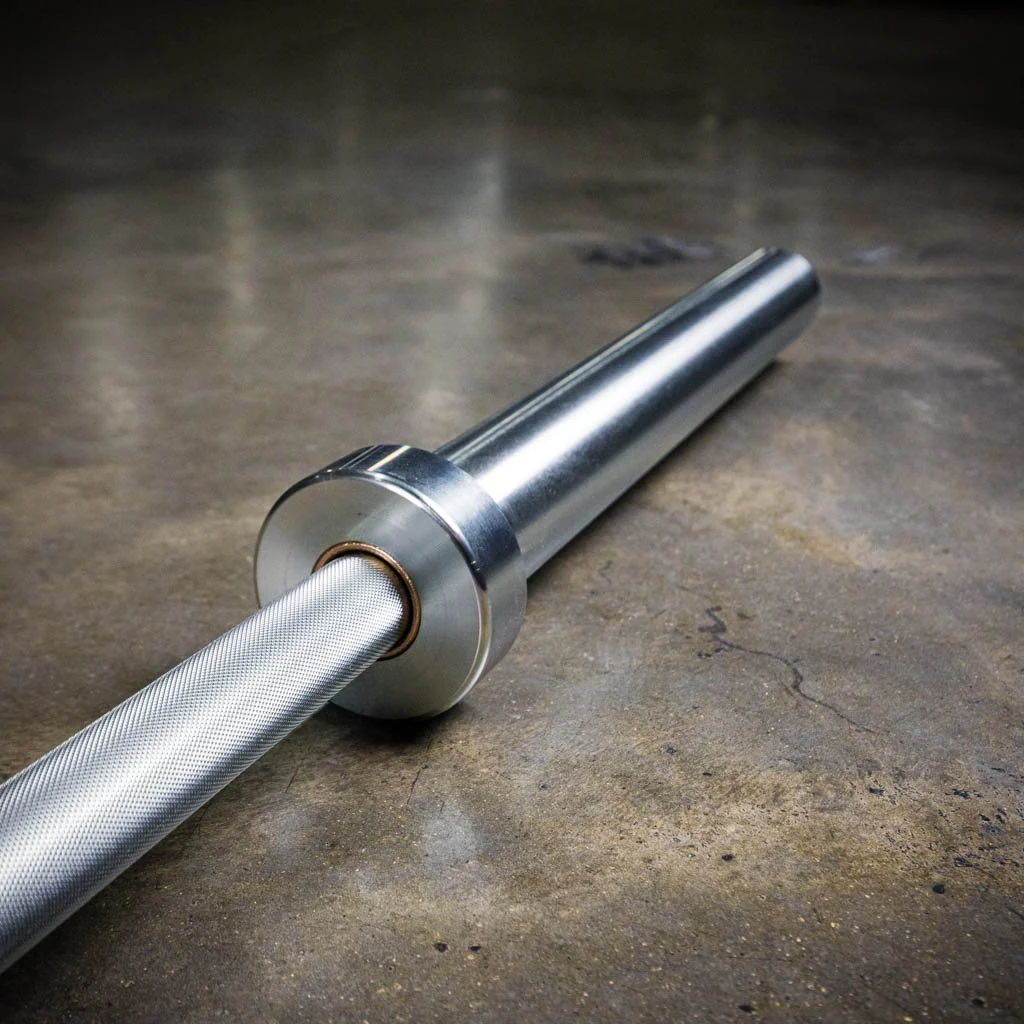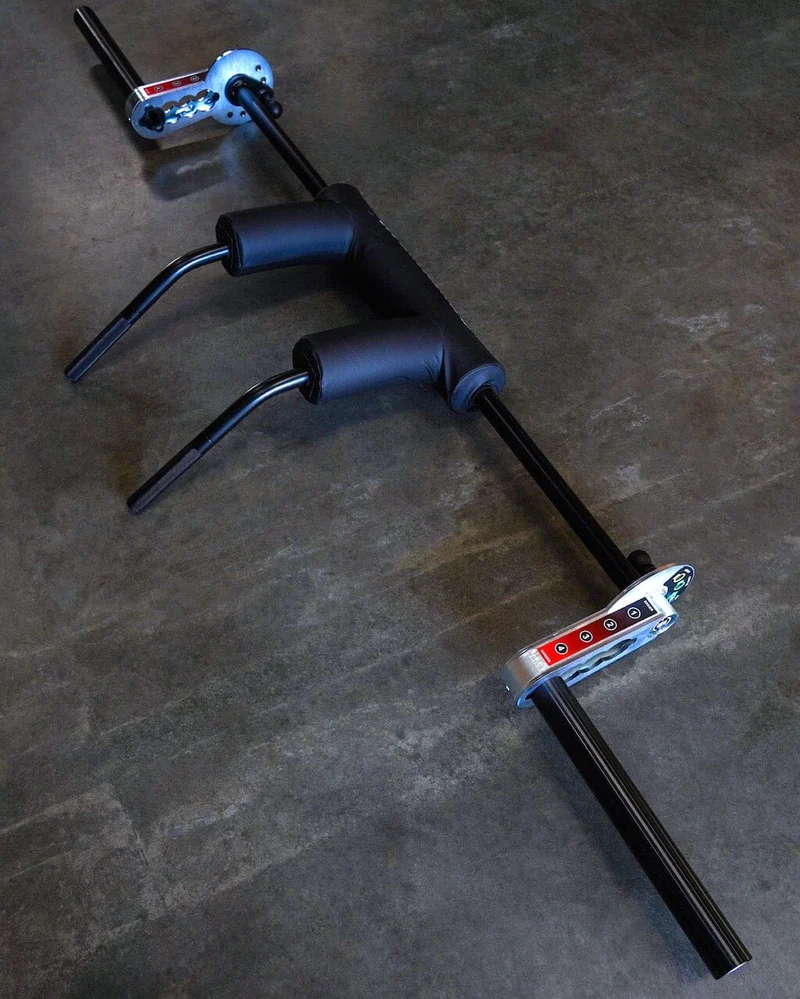Health & Fitness
The 8 Best Barbells To Buy in 2023
If you’re creating a personal workout space, one of the best pieces of home gym equipment to buy is a barbell. The barbell is very versatile because you can train the entire body with just that and weight plates. But as basic as a barbell is, it can also be quite the investment, and you want to get the biggest return on that investment by choosing the right barbell for your particular type of training. There are also so many different types of barbells that serve different needs, and figuring all of that out may be overwhelming.
We’ve done the hard work already and found the best of the best on the market, and we’re sharing our choices as well as our reasons for making these picks here. What’s the best barbell for squats and deadlifts? What should you get if you’re a beginner? You’re about to learn a lot about different barbells so you can make the best choice possible and set yourself up for training success.
Our Top Picks for the Best Barbells
Best Barbell for Powerlifting: REP Fitness Deep Knurl Power Bar EX
Pros
- IPF knurl markings
- High oxidation resistance
- Deep but comfortable knurling
- Very high weight capacity
Cons
- Bushings instead of bearings
- Only available in one color
- Packaging may be damaged
This barbell by REP Fitness is a go-to for many powerlifters because it meets the standards of the International Powerlifting Federation (IPF). It’s made of stainless steel, which will hold up well against corrosion and can be used indoors or outside. The deep knurling is enough to keep the bar in your hands and on your back, but it won’t be painful or uncomfortable if you haven’t yet built up calluses on your hands.
However, the REP Fitness Stainless Steel Power Bar may not be the best option for those new to training because there are dual rings on the knurling. This could potentially confuse beginners because they won’t know which ring to use for various lifts, such as snatches (for which many lifters use the outer knurl ring) versus a bench press (during which you can’t grip the bar outside the inner knurl ring if you want the lift to be considered a good lift in a powerlifting competition).
Best Barbell for Women: Rogue Fitness Bella Bar
Pros
- Available in multiple finishes
- High tensile strength
- Multi-purpose bar
Cons
- Certain finishes may fade quickly
- No center knurl
- Short sleeve length
Women who compete in various strength sports such as CrossFit could get a lot of good use out of the Rogue Fitness Bella Bar because it’s similar to those used in competitions. It weighs 15 kilograms (33 pounds), is 79 inches long, and has a 25-millimeter diameter, as opposed to most Olympic barbells that weigh 20 kilograms (44 pounds), are 87 inches long, and have a 28- to 30-millimeter diameter. The smaller diameter makes it easier to use for women, who typically have smaller hands than men, and newer lifters, who tend to have a weak grip.
The Bella bar has multiple knurl markings because it can also be used for powerlifting, Olympic weightlifting, and general strength training. It spins very well, so you can curl or clean with smooth motions and no resistance to spinning.
The bar is very well constructed, but if you use the black zinc barbell outside often, the color of the finish may fade. The good news is that if you choose to train outside, other colors and finishes are available that are more durable — like Cerakote and e-coat — so it can still look as well as it performs.
RELATED: Best Adjustable Dumbbells for Home Gyms
Best Barbell on Amazon: CAP Barbell The Beast
Pros
- High weight capacity
- Black phosphate finish
- Will accommodate all Olympic plates
Cons
- No center knurl
- Short return warranty
- Shorter sleeve length than other bars
Amazon is one of the first places people go to buy fitness equipment. The Beast by CAP Barbell is a solid choice to consider if your home gym needs a basic barbell to start with. It has bushings on the inside of the sleeve instead of bearings, but even though bushings tend to rotate more slowly than bearings, the barbell’s sleeves still spin well. It can be used for dynamic movements such as the clean and jerk or snatch in Olympic weightlifting or static exercises like squats and deadlifts for powerlifting.
It’s a strong bar as well for new powerlifters who want something less expensive. There is no knurling in the center, which can help determine if the barbell is center and keep it on the back for exercises such as squats, but this is still a reliable barbell that can help you learn how to train. The black finish makes it look nice as well.
Best Budget Barbell: Titan Fitness Elite Series Power Barbell
Pros
- Chrome finish
- Budget-friendly
- Two- or three-year warranties available
Cons
- No dual knurling
- Only one color available
The Titan Fitness Elite Series Power Barbell is a very budget-friendly choice that can be used as a powerlifting barbell, for bodybuilding purposes, or for general training. It’s meant to hold as much as 2,000 pounds, so it will hold up to the most intense workouts you can put it through.
There are no dual markings, and the knurling is quite aggressive. It wouldn’t be optimal as an Olympic weightlifting or CrossFit bar, as the knurling can be uncomfortable on the hands during dynamic exercises, but it can be used with any other fitness discipline.
Best CrossFit Barbell: Rogue Fitness Ohio Barbell
Pros
- Good whip
- Comfortable knurling with dual marks
- Lifetime warranty
Cons
- No 15-kilogram option
- Bronze bushings instead of bearings
- No steel or chrome finish option
The Rogue Ohio Bar is made in the USA and comes in multiple finishes, such as Cerakote, black oxide, or black zinc. Cerakote and black zinc are known to be rust-resistant, and they can protect the barbell. Black oxide can make the bar feel more comfortable on the knurling, though the finish tends to fade quickly.
Many people consider the Ohio barbell one of the best on the market because of its strength, whip, and comfort for trainees of all levels, and it’s used in many CrossFit competitions. It can be used as a weightlifting barbell or for heavy power training. It doesn’t have aggressive knurling, but it isn’t likely to slip out of your hands. This barbell is suitable for all levels of training and could be the only barbell you buy for quite some time.
RELATED: Best Kettlebells for CrossFit, Beginners, and More
Best Multi-Purpose Barbell: PRx Men’s Olympic Elite Bar
Pros
- Very durable
- Holds a lot of weight
- Self-lubricating bushings
- Bright zinc and black zinc finishes available
Cons
- Plates may not fit flush on sleeves
- No center knurl
- Light knurling
The PRx Men’s Olympic Barbell is a high-quality bar that will support lifters on everything from cleans to bicep curls. It will be a great addition to a garage gym or a commercial health club. The light to medium knurling pattern is great for beginners, but advanced trainees may want to use chalk to keep it in their hands if they plan on using it for heavy lifts. The self-lubricating bushings have been infused with oil, so they don’t need a lot of maintenance.
The barbell is available in two finishes: bright zinc and black zinc. The pressed bright zinc finish provides better rust resistance and gives the barbell a hard chrome look, while the black finish could be a good choice for those training only indoors.
Best Olympic Barbell: Eleiko IWF Weightlifting Competition Bar
Pros
- Eight needle bearings
- Great choice for Olympic lifting
- 28-millimeter shaft diameter
Cons
- Not budget friendly
- Aggressive knurling may not suit beginners
- Not suitable for other strength sports
The Eleiko IWF Weightlifting Competition bar is considered the premiere Olympic weightlifting bar. It’s specifically made for professional and top amateur Olympic lifters. It will hold as much weight as you can load on it, and the bearings provide a great spin. The whip this barbell provides can help lifters transition from the floor to the shoulders before beginning the jerk.
However, this is an expensive barbell because it’s certified by the International Weightlifting Federation (IWF). If you’re not training in the Olympic lifts or if you are working on a budget for your home gym, this won’t be the barbell for you.
Best Specialty Barbell: Kabuki Strength Transformer Bar
Pros
- 24 different positions available
- Pop pin for easy changes
- Thick padding for comfort
Cons
- Can only be used for squats
- Finish will fade sooner
- Stickers on brackets instead of paint
Specialty bars are barbells that are made for specific purposes. Examples may include the trap bar, EZ-curl bar, and safety squat bar. The Transformer Bar is an advanced version of the safety squat bar that allows you to perform multiple squat variations with one barbell. You can simply pull the pin and move it up or down to any of the available holes on both sides, and it’s like you’re performing a whole different version of this basic leg exercise. A lower setting can be a substitute for a traditional safety squat bar while a higher setting may make it feel more like a hip hinge. There is even a setting that can simulate a front squat. It will also fit in any squat rack as a traditional barbell would.
With the Transformer Bar, you also hold the handles in the front, which can help with shoulder issues. The padding will provide the comfort you need to squat without neck or upper back pain. This is a squat-only barbell and beginners with limited budgets may not have a need for it. Kabuki Strength suggests beginners can use it as well, but having a base knowledge of how to squat with a traditional barbell before moving up to a bar like this. However, advanced trainees can enjoy this one for a long time to come.
How We Chose the Best Barbells
Fitness enthusiasts choose barbells based on factors such as how they will be used, price, level of training, and how long they could last. A beginner would have no need to spend a lot of money on a bar for Olympic lifting just like a bodybuilder may not get as much out of a simple, basic version. The best barbell is going to be the one that best suits the owner’s personal needs.
Those were the factors considered in comprising this list as well. Everything from specs to the reputation of the company to the level of the trainee that would be using it are all factored in when putting together lists of quality home fitness equipment. The details are what make the barbell valuable to its owner, and we considered as many of them as possible.
Benefits of Training With a Barbell
A barbell can help you achieve any and all of your fitness goals. Barbell training can serve as a foundation of your overall fitness program. Lifters of all ages and experience can use barbells to get bigger, leaner, stronger, or faster. Barbells are more versatile than machines as well, plus they take up less space. Beyond that, they can serve athletes and beginners alike in multiple ways:
- Improved coordination
- Strength gains
- Overall health
- Improved stabilization and core strength
How To Take Care of a Barbell
A barbell is an investment, and you should pay attention to detail when it comes to taking care of it. That includes cleaning it regularly by wiping it down with basic soap and a cloth. You can also use a simple plastic or brass wire brush to get the chalk out of the grooves of the knurling. Doing this can also help prevent rust, which can negatively impact the life of your barbell.
What To Look For When Buying a Barbell
Buying a barbell shouldn’t be too difficult, but there are several components that should be considered. In order to purchase the best barbell for your personal training needs, think about the type of lifting you’ll be doing as well as the versatility of the bar itself. Also, are you the only person training or will multiple people be using it? Once you know those answers, consider the following factors as well.
Type of Barbell
The type of bar you want to use is important. Most barbells are made of steel, but some of them have different finishes that make them look better. Consider the climate you’re training in when looking for a training bar. If you plan on buying a barbell for outdoor training, or you will be using it in a humid garage or basement, then one with a color finish may not be the best choice because the elements can cause the coating to fade. You’ll want something with a steel or chrome finish. If you’re going to be using a barbell indoors exclusively that is climate controlled, then you can look at colors or specific finishes.
Bushings vs. Bearings
Bushings and bearings help the sleeve of the barbell spin as it’s moving so it can provide comfort for your wrists and elbows. Most barbells have bushings in them that are made of bronze, but some have bearings in them that maximize spin. If you’re going to be doing a lot of Olympic lifts and curls, then you may want to lean toward a bar that has high-quality bearings in them. If bushings are the way you need to go, bronze bushings that are self-lubricating will serve you well.
Weight Capacity
Most quality barbells are going to have a high weight capacity that you’re not likely to max out unless you’re training for world records. The weight capacity helps ensure that you won’t have to worry about the barbell bending permanently. Most bars have a capacity of over 1,000 pounds, while some have as much as 1,500 pounds.
Tensile Strength
Another way that companies promote the strength of their barbells is to share tensile strength, or the breaking point. If you see a tensile strength of 190,000 PSI, that means it would take over 190,000 pounds per square inch to break that barbell into two. Clearly, the higher the tensile strength, the better. Most high-end barbells will have a tensile strength of 190,000 PSI or more.
Spin
Olympic barbells are supposed to spin, which is why the bearings or bushings are so important. If you’re training in CrossFit or Olympic lifting, where the bar will be moving intensely and changing positions throughout the lift, then you want a barbell that will spin very smoothly. If you’re a powerlifter or training for general fitness, with movements that are straight up and down, then this may not be as high of a priority.
Whip
The whip refers to the slight bend, or flex, in the barbell when you’re pulling or lifting it up. Powerlifters may want a barbell with a decent whip to help them when performing the deadlift. A women’s barbell may not have as much whip as the men’s version because women might not use as much weight when it comes to the super heavy lifts, but if you train for strength, a barbell with a good whip can be a game changer.
Knurling
Knurling is the grip on the shaft of the barbell. It helps the trainee hold the weight comfortably or prevent the barbell from slipping. The less aggressive the knurling, the more comfortable it may be. Lifters that are training with heavy weights may want more aggressive knurling so it doesn’t slip out of their hands. Most barbells have medium knurling, which is about the middle ground.
Diameter
There are two diameters of a barbell to consider: the shaft diameter and the sleeve diameter. The shaft is where you hold the bar, and it should be a size that can fit in the hand without you having to sacrifice grip. Most barbells have a 28- to 32-millimeter diameter, and women’s barbells are generally 25 millimeters.
The sleeve is where the weight plates go. Standard barbells have one-inch diameters while Olympic bars have 1.9- to two-inch diameters. Standard barbells won’t support as much weight as Olympic versions, which is why there are no standard bars on this list. In any event, you should make sure the barbell will support your weights before placing the order.
Warranty
It’s never fun to buy something and have to return it. It does happen, and that is why the company’s warranty matters. Some companies have a period of time that you can get your money back, but they will replace the barbell if you deal with damage that you shouldn’t have to, such as a bushing or bolt inside the sleeve breaking. Companies have their warranties on their sites, and you should look them over before hitting that order button.
Final Thoughts
A barbell may be a simple training tool, but it’s not easy to pick the best one for your home gym. A versatile barbell that can help you train in multiple disciplines can be a great asset. If you are focusing on a single form of training such as powerlifting or Olympic lifting, a barbell built for your sport can help maximize your potential.
This guide could help you find a quality barbell that is within your budget, serves your training needs, and helps you achieve your goals. We feel these barbells are the best of the best on the market, and they would be great to have on your power rack. Choosing the right barbell and taking proper care of it can go a long way in enhancing your home gym experience.
FAQs
Different barbells have different prices because of various factors, such as where the metal was sourced, where it was made, if it has special bushings, or if you’re buying it for a specific type of training. Some barbells cost around $100, but they may not be of the best quality. You can expect to pay anywhere from $150 to over $500 for a solid barbell that will last for many workouts once you have it.
There are several versatile barbells that can hold up through all forms of training, but we feel the PRx Men’s Olympic Elite Bar is as good as it can get. It’s a reliable bar that can be used for powerlifting, CrossFit, bodybuilding, or any other fitness discipline you prefer to follow. It’s also reasonably priced. As long as you take care of it, it should last for several years.
If you’re training for a strength sport or competition, you will want to consider buying the best barbell possible for that sport. If your goal is to improve general fitness, you may not have to spend as much, and the money you save from buying a less expensive barbell could be used for dumbbells, kettlebells, or other fitness equipment that can help you reach your goals.
Beginners need a barbell that will last just as an advanced trainee would, but that doesn’t mean you have to break the bank to get one. Barbells like the Titan Fitness Elite Series Power Bar or The Beast by CAP Barbell are both reliable barbells that can be used for strength, endurance, or learning how to train with proper form. Either of those barbells will help a beginner and last until the lifter becomes advanced at training.
Barbells are great for helping with strength and muscle building, and working with free weights forces you to stabilize the weight as well. You can also use as much weight as you can handle with a barbell. They do keep your hands in a fixed position, though, whereas dumbbells allow you to move each arm freely while holding them. At the end of the day, using a barbell can help you achieve personal fitness success, and they are worth the investment.
Source link


